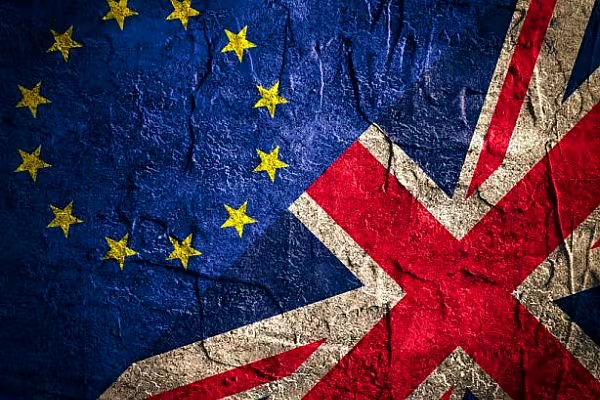Brexit talks resume Thursday with no indication that a breakthrough is in reach: the Europeans are taking a cautious approach even as both sides continue to hope for an agreement by year-end.
European diplomats in Brussels are concerned about the U.K.’s political crisis, and are trying to avoid sending Britain the wrong signals about how talks are progressing, according to a person familiar with a discussion on Wednesday. Countries including Germany asked negotiators not to rush into preparing documents for trade talks, to avoid creating the impression that negotiations are moving on, the person said.
While Irish Prime Minister Leo Varadkar was upbeat on Wednesday that a deal could be done by December, the time to make that happen is running short.
Deadlock
To break the deadlock, the U.K. has to make an offer on the Brexit divorce bill that’s good enough to satisfy EU leaders -- who have the final say on whether talks can move on to the crucial issue of trade. The timing of the next summit in mid-December means that offer probably has to come by the end of this month, according to political risk analysts at Eurasia.
EU diplomats have begun work on two versions of draft summit conclusions for the December gathering -- one for the possibility of a breakthrough and another one for continuing stalemate. The Times reports on Thursday that leaders are also preparing for the possibility of May’s downfall.
Ahead of the official start of negotiations, May’s Brexit advisor Oliver Robbins has been in Brussels this week and speaking to the EU team in private, according to people familiar with the situation. Brexit Secretary David Davis has been touring European capitals to drum up good will.
Line by Line
While the EU doesn’t expect a firm number from the British side on the bill, they do want more detail as to where the U.K. thinks it’s on the hook for liabilities.
The European side reckons the U.K. owes about 60 billion euros ($70 billion). So far the U.K. has agreed to pay about a third of that and is going through the other demands “line by line,” May says. Davis has hinted that he could go further, though it’s a sensitive issue at home: voters were told departure from the bloc would bring financial dividends, not bills.
During Davis’s European tour, there’s been no indication that he has put anything new on the table. On Wednesday he met Polish Deputy Foreign Minister Konrad Szymanski, who said that if Britain offers a clearer picture of what it wants from the transition -- the arrangement Britain wants to put in place to smooth the exit -- that could help break the deadlock on the financial settlement.
Limited Progress
More than year on from the Brexit referendum, and just 17 months before exit day, there’s barely been progress toward a deal. The issue that was meant to be easy -- the rights of EU citizens in the U.K. and Brits in Europe -- is still to be sorted, even as both sides say advances have been made.
The veto-wielding European Parliament poured cold water even on that on Wednesday, saying “there are still major issues that have to be resolved.”
News by Bloomberg, edited by ESM. Click subscribe to sign up to ESM: The European Supermarket Magazine.














